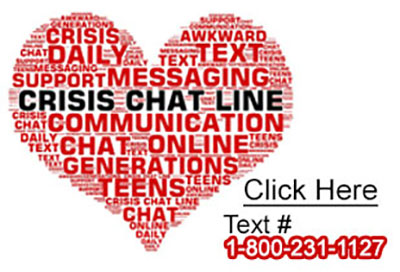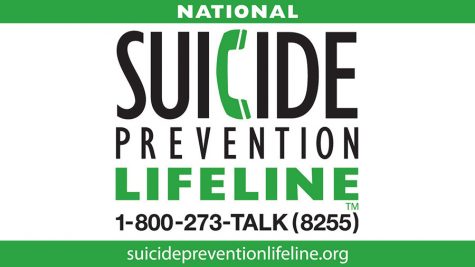Isolation’s impact on the teenage mind

April 24, 2020
In the past month, everyone’s lives have flipped upside down. Solitude is the new “normal”as every routine has become nothing but a mere memory. In times like these, it’s easy for students to become overwhelmed by the lonely reality of quarantine and its effects on everyday life.
“It’s the first time that anyone, regardless of generation, has faced something to this degree,” explained MHS Social Worker Karen Kerr. “It’s normal to struggle; everyone is struggling in their own way.”
One of the main obstacles standing in the way of students’ mental wellness is the sudden change in daily routines. Rather than waking up early and going to sleep at a reasonable hour, the temptation to stay up late and sleep in until early afternoon is overwhelming.
“We’re all waking up later and our time management skills are weaker; quarantine is very disorienting,” said Kerr. Freshman Megan Sclabassi added, “Since I am starting to get used to quarantine, my eating and sleeping schedules are completely messed up.”
Students have also found themselves struggling with concentrating and motivating themselves to complete online schoolwork. Depending on the person, online school can be incredibly easy or a nearly impossible challenge.
“It’s much harder to stay focused and get things done when there is nobody inperson holding me accountable except myself,” explained Junior Joe Antrim. Sclabassi, however, finds online school to be an easier task: “I usually don’t have a difficult time focusing while at home at all. As long as I am comfortable, I am able to get my work done and stay motivated.”
Despite these other challenges, perhaps the most difficult part of quarantine is coping with the loneliness of home.
“Isolation from friends is very difficult, especially for teenagers as you become more bonded with your peer group and depend on them for your social interaction,” began Kerr. “Being confined to your room and your family could have its benefits, since you can reconnect and tighten bonds, but it’s difficult for teens to deal with losing freedom.” Sclabassi and Antrim both agree that separation from friends has been the most difficult part of quarantine thus far.
Teens can have a difficult time coping with the negative aspects of quarantine, but focusing on easing the mind can make these challenges easier to manage.
“I have a folder on the MHS Google Drive that is full of videos and articles that can ward off anxiety during this stressful time,” explained Kerr. “Practicing mindfulness exercises such as meditation and deep breathing can help us calm down and stay focused.” Antrim, specifically, has made sure that maintaining mental stability is a top priority: “I try to do at least some sort of meditation, guided breathing, or yoga every day to center myself and keep a mental homeostasis.”
Practicing self-care can also help to ease the stress of quarantine. Indulging in exciting activities, learning new things, and taking time for oneself can lift spirits and make the repetitive days in isolation more memorable.
“The best thing about quarantine is that I found out that I can draw and cook better than I thought,” exclaimed Sclabassi. “I have also been baking, drawing, and watching a lot of movies that I haven’t had time to see.”
If you find yourself drowning in the struggles that come with the pandemic, reaching out for support from loved ones is important. Talking to family or friends about overwhelming feelings can put the mind at ease. Both Kerr and MHS School Psychologist Paige Riley can be contacted through e-mail and are available to talk with students. 
Though quarantine can seem endless as the days repeat themselves, simple safety measures can be practiced in order to ensure that it can be over as quickly as possible.
Social distancing, washing hands, staying home whenever possible, and taking other precautions can greatly limit the possibility of the virus spreading.
“Even though it can feel like it at times, it won’t last forever,” explained Kerr. “No matter what, we will get through it together.”
Important resources:
National suicide prevention line: 1(800)-273-8255
Common ground crisis line: 1(800)-231-1127
Click here to see MHS Counseling resources: